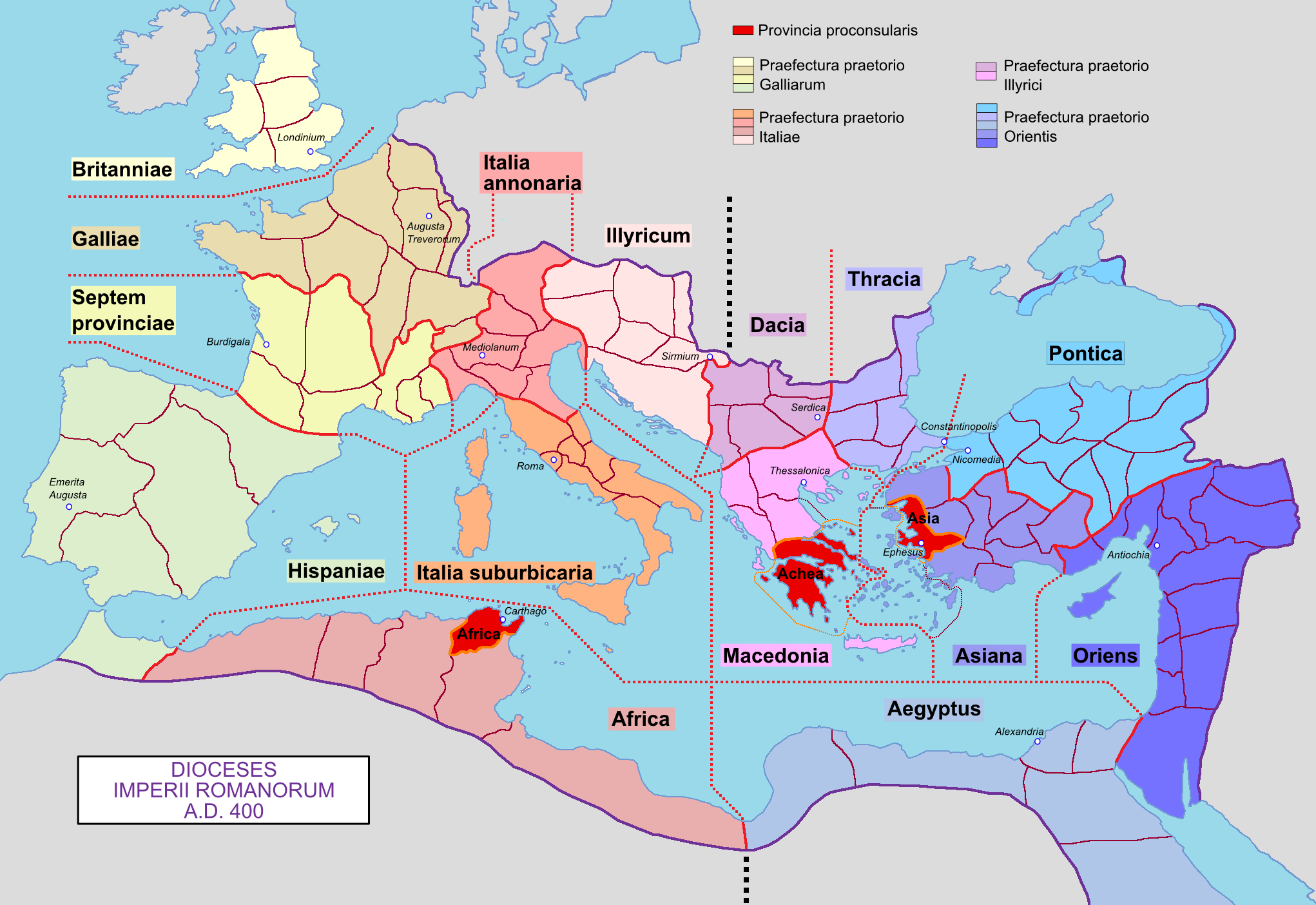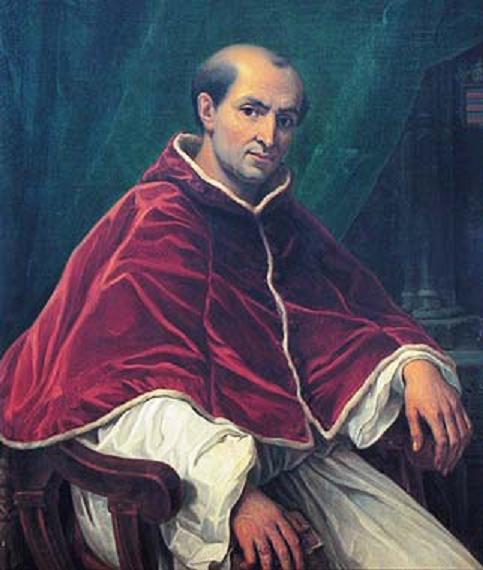|
Louis-Marie Baudouin
Louis-Marie Baudouin (2 August 1765 - 12 February 1835) was a French Roman Catholic priest who was the founder of the "Sons of Mary Immaculate" and also the "Ursulines of Jesus". Pope Benedict XVI proclaimed him to be Venerable on 20 December 2012. Life Louis-Marie Baudouin was born in Montaigu, Vendée on 2 August 1765, the last of eight children. His father, a gardener at the Château de Montaigu, died when Louis-Marie was about two years old. As a boy, he became a chorister in the collegiate church of St. Maurice. The canons undertook the expense of his education with a teacher in the town. When his mother died in 1780, he was looked after by his eldest sister Marie. He then went ot live with his eldest brother, Pierre Martin, curate of Chantonnay. When Pierre Martin was made Curé of Angles in 1782, his younger brother accompanied him. That October Louis-Marie entered the Seminary of Luçon. He was ordained as a Catholic priest at Saint-Malo on 19 September 1789. He was ass ... [...More Info...] [...Related Items...] OR: [Wikipedia] [Google] [Baidu] |
Montaigu, Vendée
Montaigu () is a former Communes of France, commune in the Vendée Departments of France, department in the Pays de la Loire Regions of France, region in western France. On 1 January 2019, it was merged into the new commune Montaigu-Vendée. 20 April 2017 See also *Communes of the Vendée departmentReferences Former communes of Vendée {{Vendée-geo-stub ...[...More Info...] [...Related Items...] OR: [Wikipedia] [Google] [Baidu] |
French Revolution
The French Revolution ( ) was a period of radical political and societal change in France that began with the Estates General of 1789 and ended with the formation of the French Consulate in November 1799. Many of its ideas are considered fundamental principles of liberal democracy, while phrases like ''liberté, égalité, fraternité'' reappeared in other revolts, such as the 1917 Russian Revolution, and inspired campaigns for the abolition of slavery and universal suffrage. The values and institutions it created dominate French politics to this day. Its causes are generally agreed to be a combination of social, political and economic factors, which the ''Ancien Régime'' proved unable to manage. In May 1789, widespread social distress led to the convocation of the Estates General, which was converted into a National Assembly in June. Continuing unrest culminated in the Storming of the Bastille on 14 July, which led to a series of radical measures by the Assembly, i ... [...More Info...] [...Related Items...] OR: [Wikipedia] [Google] [Baidu] |
Diocese Of Luçon
In church governance, a diocese or bishopric is the ecclesiastical district under the jurisdiction of a bishop. History In the later organization of the Roman Empire, the increasingly subdivided provinces were administratively associated in a larger unit, the diocese (Latin ''dioecesis'', from the Greek term διοίκησις, meaning "administration"). Christianity was given legal status in 313 with the Edict of Milan. Churches began to organize themselves into dioceses based on the civil dioceses, not on the larger regional imperial districts. These dioceses were often smaller than the provinces. Christianity was declared the Empire's official religion by Theodosius I in 380. Constantine I in 318 gave litigants the right to have court cases transferred from the civil courts to the bishops. This situation must have hardly survived Julian, 361–363. Episcopal courts are not heard of again in the East until 398 and in the West in 408. The quality of these courts was l ... [...More Info...] [...Related Items...] OR: [Wikipedia] [Google] [Baidu] |
Diocese
In Ecclesiastical polity, church governance, a diocese or bishopric is the ecclesiastical district under the jurisdiction of a bishop. History In the later organization of the Roman Empire, the increasingly subdivided Roman province, provinces were administratively associated in a larger unit, the Roman diocese, diocese (Latin ''dioecesis'', from the Greek language, Greek term διοίκησις, meaning "administration"). Christianity was given legal status in 313 with the Edict of Milan. Churches began to organize themselves into Roman diocese, dioceses based on the Roman diocese, civil dioceses, not on the larger regional imperial districts. These dioceses were often smaller than the Roman province, provinces. Christianity was declared the Empire's State church of the Roman Empire, official religion by Theodosius I in 380. Constantine the Great, Constantine I in 318 gave litigants the right to have court cases transferred from the civil courts to the bishops. This situ ... [...More Info...] [...Related Items...] OR: [Wikipedia] [Google] [Baidu] |
La Rochelle
La Rochelle (, , ; Poitevin-Saintongeais: ''La Rochéle''; oc, La Rochèla ) is a city on the west coast of France and a seaport on the Bay of Biscay, a part of the Atlantic Ocean. It is the capital of the Charente-Maritime department. With 75,735 inhabitants in 2017, La Rochelle is the most populated commune in the department and ranks fifth in the New Aquitaine region after Bordeaux, the regional capital, Limoges, Poitiers and Pau. Its inhabitants are called "les Rochelaises" and "les Rochelais". Situated on the edge of the Atlantic Ocean the city is connected to the Île de Ré by a bridge completed on 19 May 1988. Since the Middle-Ages the harbour has opened onto a protected strait, the Pertuis d'Antioche and is regarded as a "Door océane" or gateway to the ocean because of the presence of its three ports (fishing, trade and yachting). The city has a strong commercial tradition, having an active port from very early on in its history. La Rochelle underwent sustained ... [...More Info...] [...Related Items...] OR: [Wikipedia] [Google] [Baidu] |
Chavagnes
Chavagnes (; also called Chavagnes-les-Eaux) is a former commune in the Maine-et-Loire department of western France. On 1 January 2017, it was merged into the new Terranjou commune. 10 November 2016 See also * *, Vendée department * Chavagnes-les-Redoux, Vendée department * |
Blessed Virgin Mary
Mary; arc, ܡܪܝܡ, translit=Mariam; ar, مريم, translit=Maryam; grc, Μαρία, translit=María; la, Maria; cop, Ⲙⲁⲣⲓⲁ, translit=Maria was a first-century Jewish woman of Nazareth, the wife of Joseph and the mother of Jesus. She is a central figure of Christianity, venerated under various titles such as virgin or queen, many of them mentioned in the Litany of Loreto. The Eastern and Oriental Orthodox, Church of the East, Catholic, Anglican, and Lutheran churches believe that Mary, as mother of Jesus, is the Mother of God. Other Protestant views on Mary vary, with some holding her to have considerably lesser status. The New Testament of the Bible provides the earliest documented references to Mary by name, mainly in the canonical Gospels. She is described as a young virgin who was chosen by God to conceive Jesus through the Holy Spirit. After giving birth to Jesus in Bethlehem, she raised him in the city of Nazareth in Galilee, and was in Jeru ... [...More Info...] [...Related Items...] OR: [Wikipedia] [Google] [Baidu] |
Chavagnes International College
eng, Put down your roots in those you have chosen , motto_translation = , established = 2002 (re-fashioned) , closed = , type = Independent secondary school , religious_affiliation = Catholicism , principal = Ferdi McDermott , r_head_label = , r_head = , address = 96 rue du Calvaire , postcode = 85250 , city = Chavagnes-en-Paillers , country = France , enrolment = 45 , gender = Boys , lower_age = 11 , upper_age = 18 , houses = , colours = Blue, red and gold , alumni = Old Chavagnians , website = Chavagnes International College is an independent Catholic secondary school for boys, located in Chavagnes-en-Paillers, France. Founded in 1802 by Louis-Marie Baudouin the school was re-fashioned an "international college" in 2002. The school's language of instruction is English, and it prepares pupils for British GCSEs and A-levels, with the French Bre ... [...More Info...] [...Related Items...] OR: [Wikipedia] [Google] [Baidu] |
Wars Of The Vendée
War is an intense armed conflict between states, governments, societies, or paramilitary groups such as mercenaries, insurgents, and militias. It is generally characterized by extreme violence, destruction, and mortality, using regular or irregular military forces. Warfare refers to the common activities and characteristics of types of war, or of wars in general. Total war is warfare that is not restricted to purely legitimate military targets, and can result in massive civilian or other non-combatant suffering and casualties. While some war studies scholars consider war a universal and ancestral aspect of human nature, others argue it is a result of specific socio-cultural, economic or ecological circumstances. Etymology The English word ''war'' derives from the 11th-century Old English words ''wyrre'' and ''werre'', from Old French ''werre'' (also ''guerre'' as in modern French), in turn from the Frankish *''werra'', ultimately deriving from the Proto-Germanic *''we ... [...More Info...] [...Related Items...] OR: [Wikipedia] [Google] [Baidu] |
Napoleon Bonaparte
Napoleon Bonaparte ; it, Napoleone Bonaparte, ; co, Napulione Buonaparte. (born Napoleone Buonaparte; 15 August 1769 – 5 May 1821), later known by his regnal name Napoleon I, was a French military commander and political leader who rose to prominence during the French Revolution and led Military career of Napoleon Bonaparte, successful campaigns during the French Revolutionary Wars, Revolutionary Wars. He was the ''de facto'' leader of the First French Republic, French Republic as First Consul from 1799 to 1804, then Emperor of the French from 1804 until 1814 and again in Hundred Days, 1815. Napoleon's political and cultural legacy endures to this day, as a highly celebrated and controversial leader. He initiated many liberal reforms that have persisted in society, and is considered one of the greatest military commanders in history. His wars and campaigns are studied by militaries all over the world. Between three and six million civilians and soldiers Napoleonic Wa ... [...More Info...] [...Related Items...] OR: [Wikipedia] [Google] [Baidu] |
Les Sables-d'Olonne
Les Sables-d'Olonne (; French meaning: "The Sands of Olonne"; Poitevin: ''Lés Sablles d'Oloune'') is a seaside town in Western France, on the Atlantic Ocean. A subprefecture of the department of Vendée, Pays de la Loire, it has the administrative level of commune. On 1 January 2019, the municipalities of Olonne-sur-Mer, Château-d'Olonne and Les Sables-d'Olonne merged, retaining the latter name. Location and geography Les Sables-d'Olonne is a seaside town in western France, on the Atlantic Ocean. It is situated on the coast between La Rochelle and Saint-Nazaire, near the coastal terminus of the A87 that connects it and nearby communities to La Roche-sur-Yon, Cholet, and Angers to the northeast. The nearest major metropolitan center of France, to Les Sables-d'Olonne, is Nantes, to the north (approximately 105 km, by road). Les Sables-d'Olonne station has rail connections to Paris, La Roche-sur-Yon and Nantes. It is at the level of administrative division in the French ... [...More Info...] [...Related Items...] OR: [Wikipedia] [Google] [Baidu] |
Libourne
Libourne (; oc, label= Gascon, Liborna ) is a commune in the Gironde department in Nouvelle-Aquitaine in southwestern France. It is a sub-prefecture of the department. It is the wine-making capital of northern Gironde and lies near Saint-Émilion and Pomerol. Geography Libourne is located at the confluence of the Isle and Dordogne rivers. Libourne station has rail connections to Bordeaux, Bergerac, Angoulême, Périgueux, Limoges, Brive-la-Gaillarde and Sarlat-la-Canéda. History In 1270, ''Leybornia'' was founded as a bastide by Roger de Leybourne (of Leybourne, Kent), an English seneschal of Gascony, under the authority of King Edward I of England. It suffered considerably in the struggles of the French and English for the possession of Gironde in the 14th century, and joined France in the 15th century. In December 1854 John Stuart Mill passed through Libourne, remarking "I stopped at Libourne as I intended & had a walk about it this morning quite the best thing there is ... [...More Info...] [...Related Items...] OR: [Wikipedia] [Google] [Baidu] |







